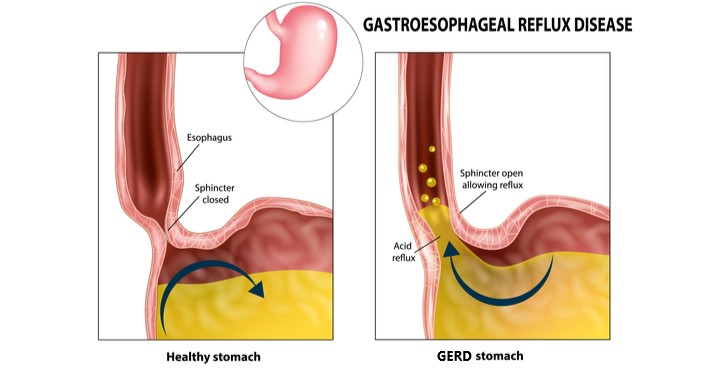GERD, or Gastroesophageal Reflux Disease, is a common condition that affects millions of people worldwide. It occurs when stomach acid flows back into the esophagus, causing irritation and inflammation. While occasional acid reflux is normal, frequent or severe reflux can be a sign of GERD. In this article, we’ll explore the causes, symptoms, and treatment options for GERD.

Causes of GERD
There are several factors that can contribute to GERD. Some of the most common causes include:
- A weak lower esophageal sphincter (LES), which is the muscle that separates the esophagus from the stomach and prevents acid from flowing back up.
- Hiatal hernia, which is when the upper part of the stomach protrudes through the diaphragm into the chest cavity.
- Obesity, which can put pressure on the stomach and LES, causing acid reflux.
- Pregnancy, which can also put pressure on the stomach and LES.
- Certain foods and drinks, such as fatty or fried foods, alcohol, coffee, and chocolate.
Symptoms of GERD
The most common symptom of GERD is heartburn, which is a burning sensation in the chest that can sometimes radiate to the neck or throat. Other symptoms may include:
- Regurgitation of food or sour liquid
- Difficulty swallowing
- Coughing or wheezing
- Hoarseness or sore throat
- Feeling like there’s a lump in your throat
If you experience any of these symptoms regularly, it’s important to talk to your doctor to rule out other conditions and get an accurate diagnosis.
Treatment options for GERD
Treatment for GERD usually involves a combination of lifestyle changes, medication, and in some cases, surgery. Here are some of the most common treatment options:
- Lifestyle changes: Avoiding trigger foods, losing weight if you’re overweight, and eating smaller, more frequent meals can all help reduce symptoms of GERD.
- Medication: Over-the-counter antacids like Tums or Rolaids can provide temporary relief from heartburn. Proton pump inhibitors (PPIs) like omeprazole or lansoprazole are stronger medications that can reduce the amount of acid produced by the stomach.
- Surgery: In severe cases, surgery may be necessary to strengthen the LES or repair a hiatal hernia.
It’s important to note that untreated GERD can lead to complications like esophageal ulcers, bleeding, or even cancer in rare cases. That’s why it’s important to seek treatment if you’re experiencing symptoms of GERD.
In conclusion, GERD is a common condition that can cause discomfort and even serious health problems if left untreated. If you’re experiencing symptoms of GERD, talk to your doctor to get an accurate diagnosis and discuss treatment options. With the right approach, you can manage your symptoms and improve your quality of life.
